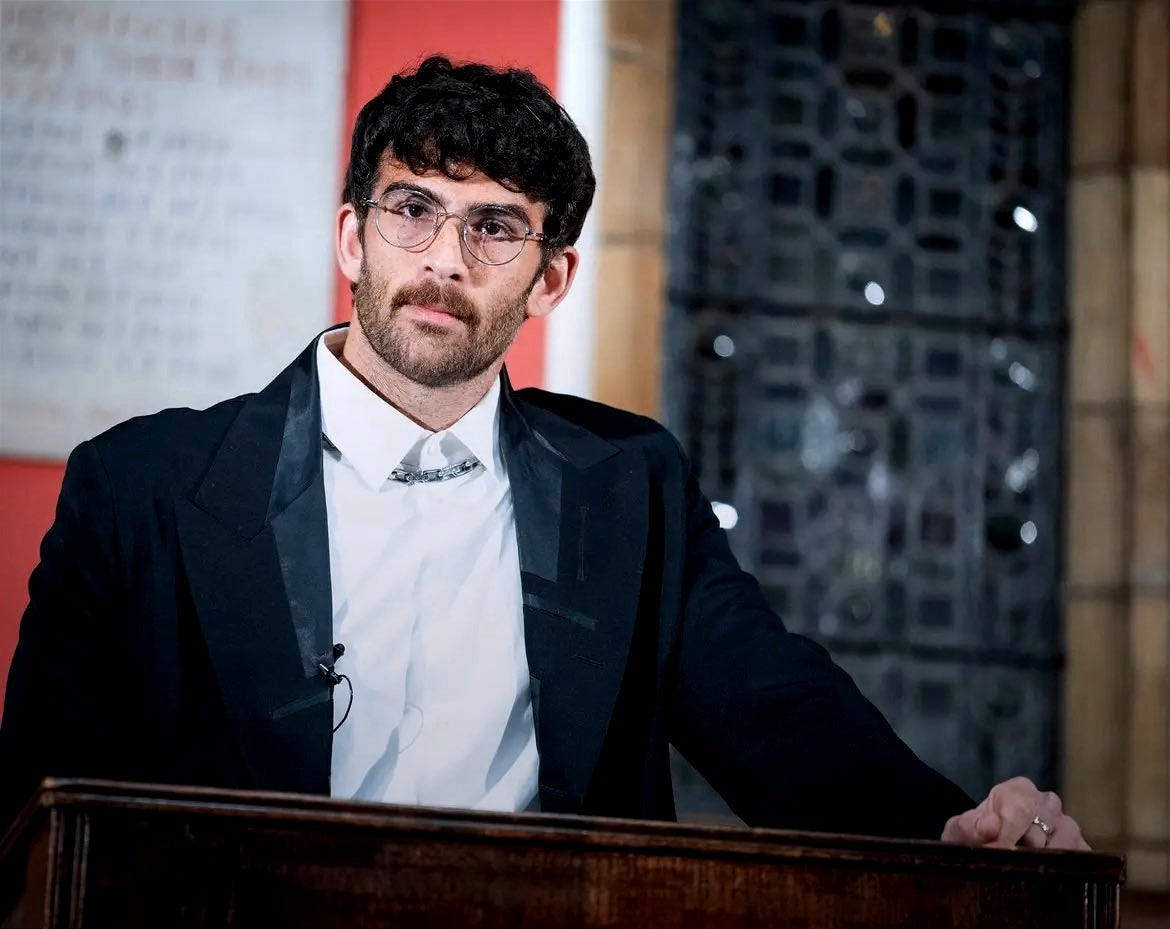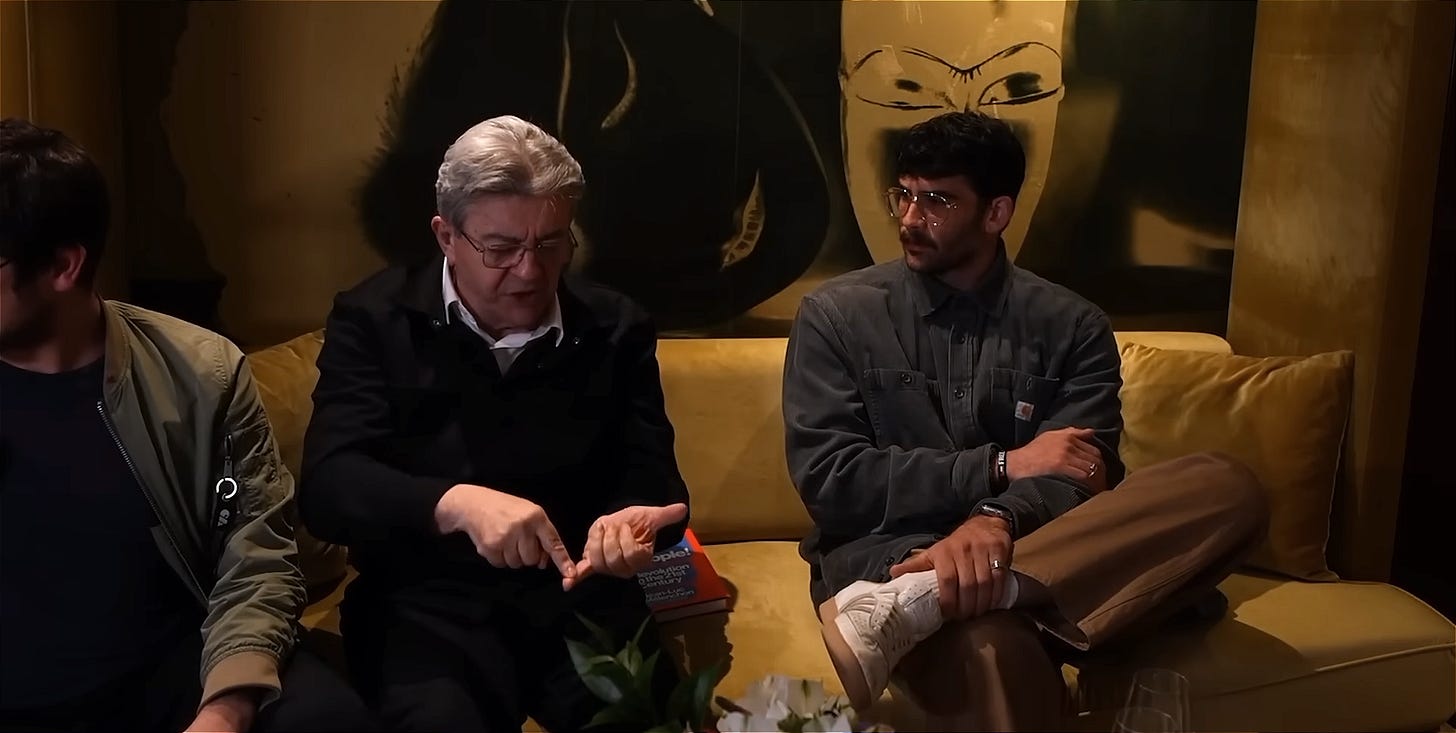Twitch streamer and political commentator Hasan Piker was detained by U.S. Customs and Border Protection on Sunday after landing at Chicago O’Hare. His crime? Coming back from a trip to France—where he had a public, filmed conversation with French socialist leader Jean-Luc Mélenchon—and, let’s be honest, being one of the loudest, most visible leftist voices in American media.
This wasn’t about customs paperwork or routine screening. This was a calculated show of force.
“They asked me about my political opinions, about what I said on Twitch,” Piker recounted. “They wanted to put the fear of God into me.”
CBP agents pulled him aside. The interrogation veered from national security theater into something closer to an inquisition: What are your thoughts on Hamas? The Houthis? Have you ever interviewed them? What do you think of Donald Trump?
The message is loud and clear: Don’t talk too loud. Don’t lean too far left. Don’t come home with ideas they don’t want spreading.
This Wasn’t a Mistake. It Was a Message.
This wasn’t some rogue agent misreading a file. Hasan Piker is a public figure—millions of followers, a visible online presence, and a schedule that’s hardly secret. Someone saw his name, clocked his politics, and flagged him. You don’t “accidentally” ask a Twitch streamer about his content bans and controversial clips unless you’re watching him already.
That level of attention doesn't happen without institutional intent.
Let’s be clear: DHS has a long, well-documented history of policing ideology under the guise of “security.” Muslim travelers have been detained for carrying religious texts. Indigenous land defenders were labeled threats. Immigration activists and journalists—especially those covering the border—have been interrogated, tracked, and even deported. Now it’s the online left’s turn.
Piker’s politics are explicitly anti-imperialist, pro-worker, and unflinchingly critical of U.S. foreign policy. That’s the kind of stance the security state doesn't debate—it surveils.
The Legal Gray Zone That’s Actually Pitch Black
Here’s where it gets dangerous.
At one point in the interrogation, Piker said he realized the tone had shifted—from vaguely suspicious to possibly criminal.
“Depending on how I answered… I’m going to jail.”
That moment should alarm everyone. Because the questions DHS agents asked—about whether he’s ever spoken to members of foreign groups like the Houthis or Hamas—weren’t about crime. They were about ideology.
Here’s the truth: interviewing or speaking to a designated group member is not illegal. Journalists at the New York Times, BBC, and VICE have done it. So have academic researchers. But when it’s a leftist media figure like Hasan Piker, the implication flips—suddenly, asking a question becomes "material support," and dissent becomes suspicion.
This is how speech gets criminalized without laws ever being passed. Just vague statutes, informal targeting, and power operating in the shadows.
Repression with a Livestream
But this is 2025—and repression has consequences.
Within hours of being released, Piker went live on Twitch and laid it all out. His voice shook with fury and disbelief, but he was methodical. Calm. Precise. He didn’t just tell the story—he dissected it. Thousands watched. Then came the headlines: Washington Post, HuffPost, Common Dreams. The silence the state was hoping for? Gone.
What DHS underestimated is how quickly a personal act of intimidation can become a public spectacle of resistance.
By trying to scare Piker into submission, they gave him the best possible content: proof that he’s hitting a nerve.
The Bigger Threat Behind the Curtain
We are living through a moment where far-right violence gets downplayed, while leftist dissent gets monitored, flagged, and punished. Where cops are flush with military gear, but teachers get pink slips. Where solidarity with Palestinians, critique of empire, or even interviewing the wrong person can brand you a security risk.
This is not just about Hasan Piker. It’s about what his detention reveals.
The security state is not neutral. It doesn’t exist to protect rights—it exists to protect power. And when leftist voices grow too big to ignore, the gloves come off.
“They wanted me to know they could do this,” Piker said.
“And if they can do it to me, they can do it to anyone.”
The Warning That Backfired
Let’s not sugarcoat it—this was a scare tactic. A trial balloon. A warning to other creators, activists, and journalists: stay in bounds, or we’ll make your life hell.
But warnings only work if people are afraid. And right now? People are pissed.
Hasan’s detention sparked outrage, not fear. And it exposed something fragile at the heart of the American security apparatus: a need to silence rather than engage, to punish rather than persuade.
They wanted to show strength. What they showed was desperation.
Because the louder they try to shut people up, the more obvious it becomes that those people have something worth saying.







